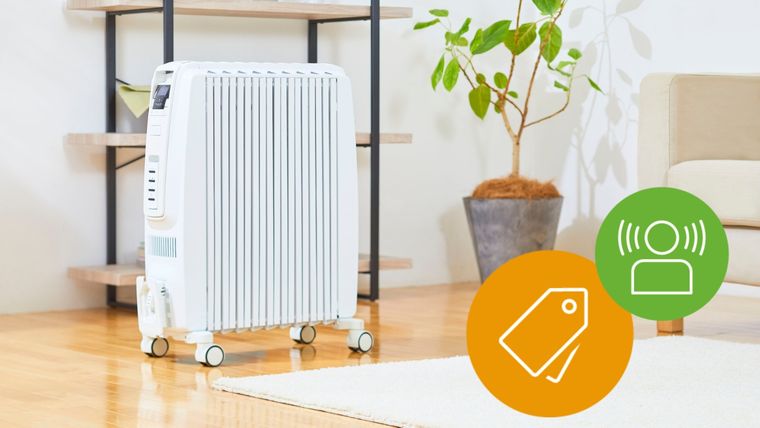
As temperatures drop, the Advertising Standards Authority (ASA) is urging people to be on high alert for misleading mini-heater ads.
With the cost-of-living crisis continuing to put pressure on households, we know that many are worried about rising heating bills. Understandably, people, particularly those who may be financially or physically vulnerable, are looking for cheaper ways to stay warm. And some advertisers are exploiting their concerns through highly misleading ads for plug-in mini-heaters.
This is an issue we’ve been monitoring closely for the past couple of years. Some of the problems we’ve seen include:
- Claims that mini-heaters are more efficient than other home heating methods, without evidence.
- Suggestions a mini-heater is a cheaper alternative to central heating, when this isn’t the case.
- Exaggerations about a mini-heater’s capabilities or performance.
These ads often appear more frequently during the colder months, when people are most concerned about heating bills. Our monitoring suggests a small number of players in this sector are responsible for most of the misleading content.
What action have we taken so far?
- In 2023, we issued an Enforcement Notice to advertisers of electric plug-in mini-heaters, warning them not to mislead people about performance or money-saving benefits.
- We banned four ads that falsely claimed mini-heaters could replace conventional home heating.
- We’ve used our AI-based Active Ad Monitoring system to track and take down ads that break the rules.
Following this work, we’ve seen the number of advertisers following the rules in this sector rising from just 2% to 31%. While that’s an improvement and we’ll continue our work in this sector, the dubious nature of some of the businesses involved means our action alone won’t be a silver bullet in solving the problem.
Now, we’re taking our action a step further by issuing a public warning about these ads.
Red flags to watch out for
- Too good to be true? Be sceptical of claims that one small heater can warm an entire house – it can’t. Watch out for other unrealistic promises like near-100% efficiency.
- Poor grammar and spelling mistakes are common signs of a scam.
- Dramatic backstories. Some ads tell fantastical tales or dramatic stories about how the product was “invented” – do they check out?
- False victimhood. Be wary of ads claiming regulators or big companies are trying to “shut them down”.
What you can do
Here’s what you can do if you’re unsure about a mini-heater ad you’ve seen:
- Check reviews carefully. Don’t just rely on what’s on the seller’s website, look for independent and reputable sources.
- Verify the seller. Legitimate businesses should list clear contact details and an address; scammers often hide or fake this information.
- Question celebrity endorsements. If an ad features a famous face, double-check that it’s a genuine endorsement.
If you’re concerned about a mini-heater ad you’ve seen, report it to us via our website.
Protecting consumers
Our rules are clear: ads must not mislead or exploit people’s financial concerns, especially during the cost-of-living crisis. For anyone struggling to stay warm this winter, the NHS provides guidance on keeping warm and Citizens Advice offers support and information on where to find help with living costs.
We’re continuing to work closely with platforms and other regulators to clamp down on misleading and scam mini-heater ads, but it’s also important for the public to stay vigilant. Together, we can help make sure rogue advertisers are held to account and people stay protected.
More on
-
Keep up to date
Sign up to our rulings, newsletters and emargoed access for Press. Subscribe now.


